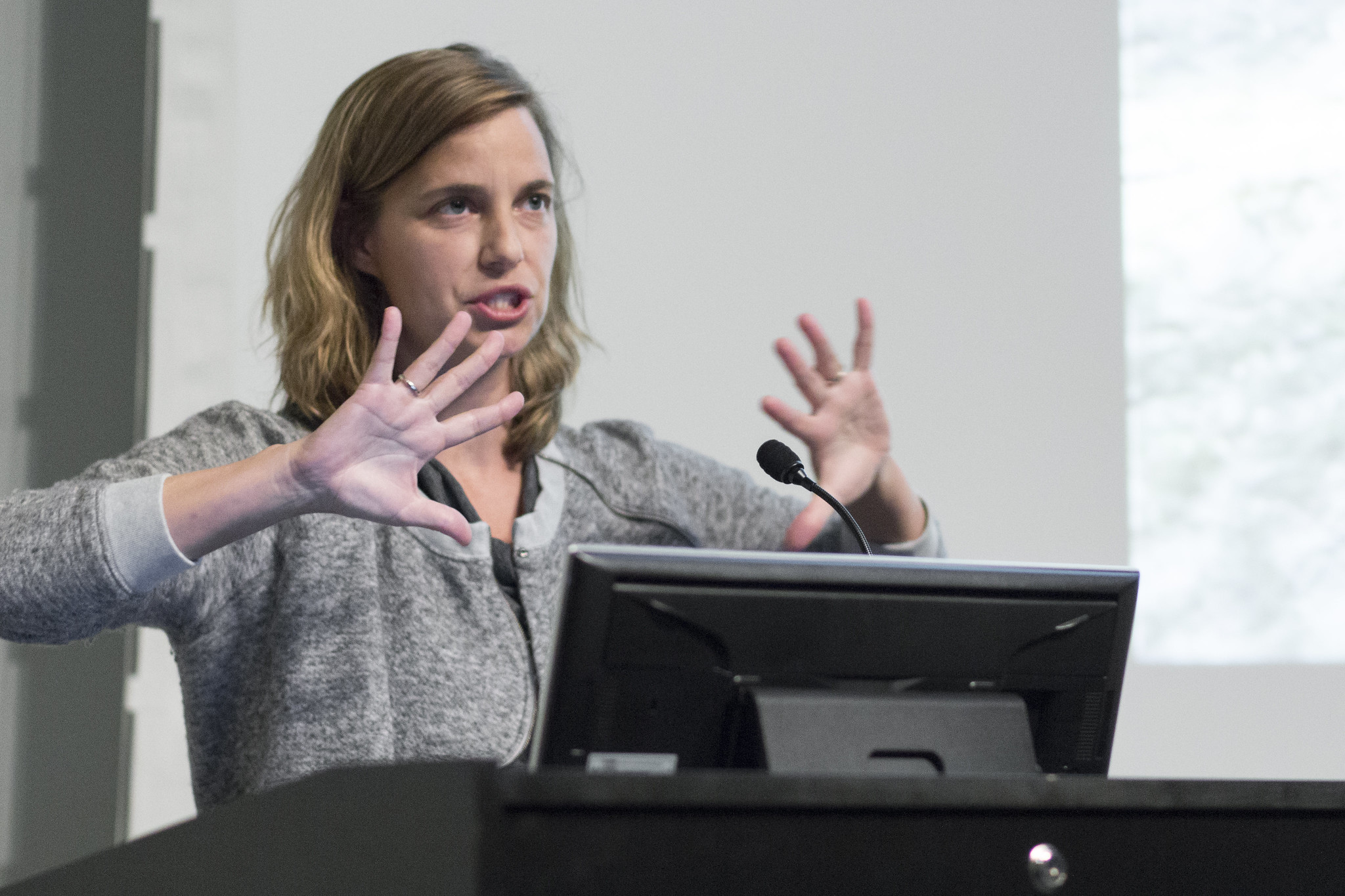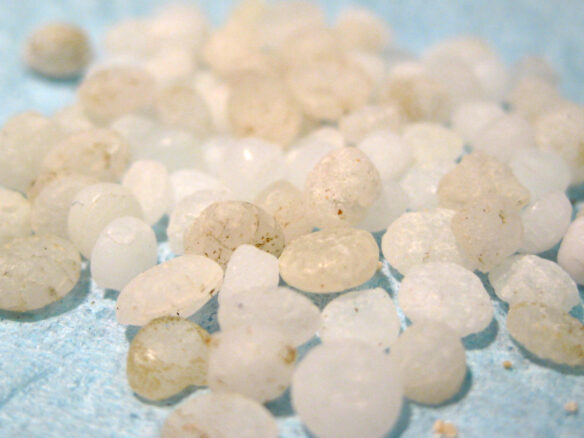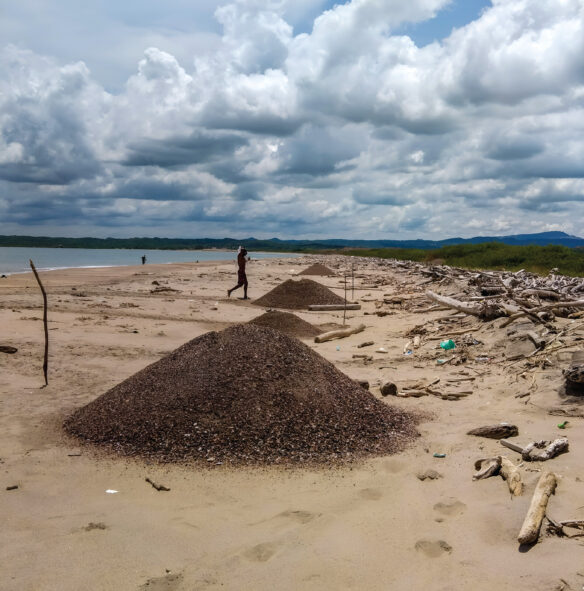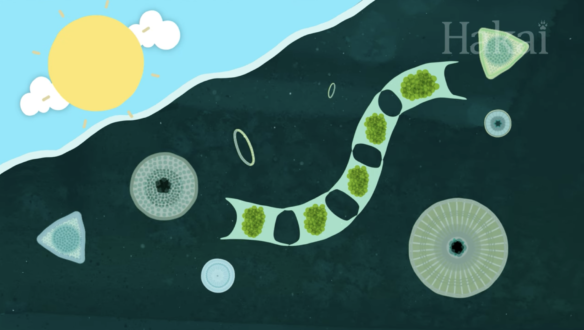Excerpt:
Landscape architect Kate Orff works on rebuilding natural systems to help communities and cities reduce their climate risks. Places with interwoven ecological systems, she says, are more resilient and better able both to respond to emergencies and adapt for the future.
When people think of landscape architecture, small-scale recreational spaces like urban parks, gardens, and golf courses may come to mind. MacArthur “Genius Award” winner Kate Orff has a grander and more ecologically ambitious vision.
Orff, director of Columbia University’s Urban Design Program, believes that architects should do more than just create beautiful spaces: They also need to work with nature to create resilient living environments that both help to knit human communities together and protect them against the ravages of climate change.
SCAPE, the New York City-based design firm that Orff founded in 2007, is currently working in Louisiana on a project that will counter sea level rise and land loss in the Mississippi River Delta. SCAPE has also partnered with the Atlanta Regional Commission to create a 125-mile-long trail and greenway along the Chattahoochee River, which aims to bring racially diverse communities along its banks together, based on their shared love of the river.
In an interview with Yale Environment 360, Orff said that it is not enough simply to restore natural systems to their former condition. “There is no ‘pure nature’ that’s outside of us, untouched up there in the foothills somewhere,” she said. “We’ve ‘made’ the world what it is already, so now we need to take a very, very strong hand in the remaking. … A big part of climate adaptation may simply be unbuilding what we’ve already built…”
See Also:
2023 Obel Award celebrates Kate Orff’s ecosystem-driven designs – Wallpaper
Excerpt:
Scape and its founder Kate Orff have scooped the 2023 Obel Award, which celebrates the landscape studio’s Living Breakwaters project.
The 2023 Obel Award has been revealed, going to American landscape studio Scape and its founder Kate Orff (member of our Wallpaper* USA 300) for the Living Breakwaters project – an inspiring ecosystems-driven piece of green infrastructure design off the shore of Staten Island in New York. Championing sustainable architecture through pioneering, research-based solutions with an eco soul, Scape’s work and the particular project are in perfect alignment with the award’s mission – to focus on the ecological and social responsibilities of architecture.
Chair of the Obel award jury Martha Schwartz said: ‘Breakwaters are an ancient idea for how to protect shorelines – and the people who live close to them – by building underwater seawalls to defend a harbour or a beach from the force of waves. Kate has designed an extraordinary, modern-day interpretation, the Living Breakwaters, which will not only protect humans and revitalise the coastline of New York City, but also restore lost marine biodiversity. This is a visionary project that tackles the full task of adaptation, and which has the capacity to inspire and to positively impact vulnerable shorelines worldwide.’
Landscape architect Kate Orff shares visionary goal of nature-based infrastructure
– PBS NewsHour (08-29-2023)
If you think of landscape architecture, you might conjure gardens and plantings. But in a rapidly changing climate fueled by intense heat, flooding, fires, smoke and hurricanes, architect and designer Kate Orff is helping redefine her field and push us all toward new climate adaptation solutions…
Reviving New York’s rivers — with oysters! | Kate Orff
– TED (01-31-2011)
Architect Kate Orff sees the oyster as an agent of urban change. Bundled into beds and sunk into city rivers, oysters slurp up pollution and make legendarily dirty waters clean — thus driving even more innovation in “oyster-tecture.” Orff shares her vision for an urban landscape that links nature and humanity for mutual benefit.









